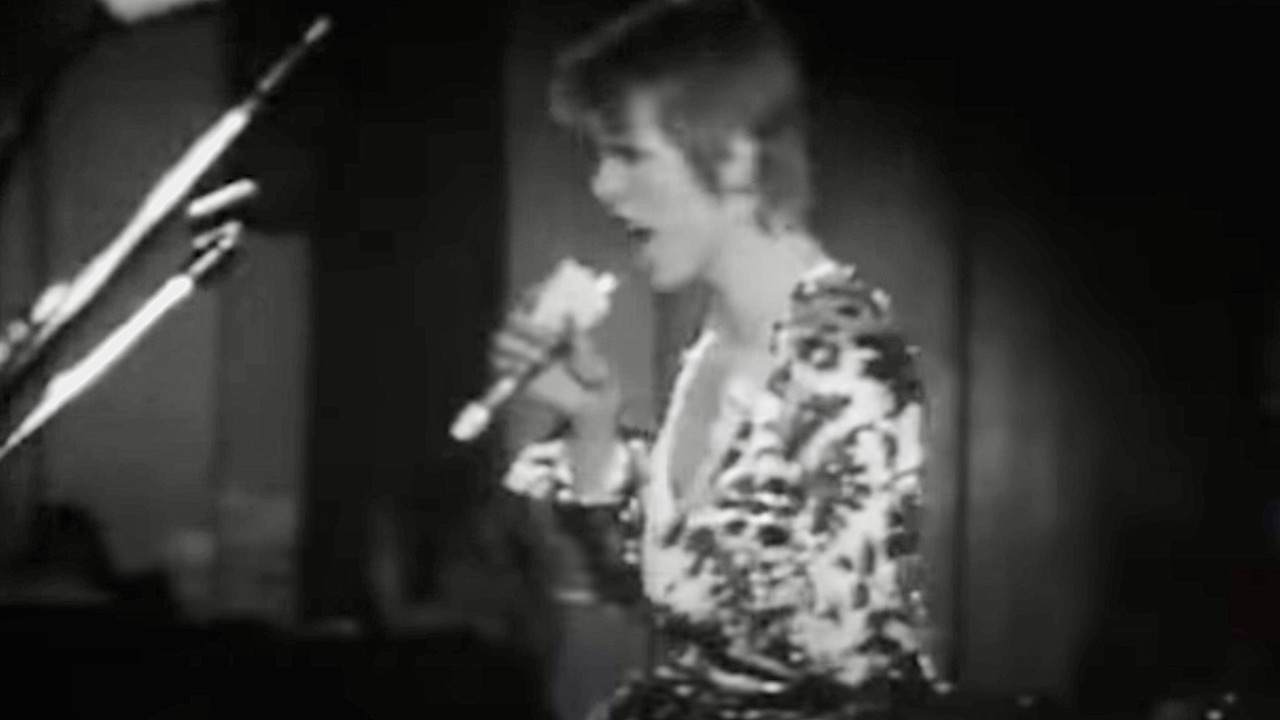During a productive day at Trident studios on February 4, 1972, David Bowie taped three songs - Starman, Rock 'N' Roll Suicide and Suffragette City - to bring the recording of his fifth studio album, The Rise and Fall of Ziggy Stardust and the Spiders from Mars, to a close.
Just eight days later, at the Great Hall at Imperial College, the 25-year-old Londoner gave his hometown audience an early preview of the record, playing Rock 'N' Roll Suicide and Suffragette City in the capital for the first time.
Following a warm-up show in Aylesbury, the London gig was date three of the first ever Ziggy and the Spiders tour, although the band - Bowie, Mick Ronson, Trevor Bolder and 'Woody' Woodmansey - were not yet billed under that name. As if having a reviewer and photographer from Melody Maker in attendance didn't bring enough additional pressure, Bowie had also granted access to a French TV film crew, who shot the show for potential future broadcast on the top-rated Pop Deux programme. According to Bowie's official site, 20 minutes of the set was filmed, but only one song was ever aired on French TV screens, Suffragette City, the clip you can see below:
Understandably, this was not the slickest ever Ziggy Stardust show, but the man from Melody Maker was impressed.
"Dedicated to bringing theatrics back to rock music, David Bowie swirled and captivated at London's Imperial College on Saturday, queening his way through old and new songs, before a house packed to the door," he wrote. "And they hung on every word that dropped from his lips."
Just 16 months later, on July 3, 1973, Bowie 'retired' Ziggy Stardust at the climax of his final show in support of the album, at London's Hammersmith Odeon. But by then, the young Londoner had already blown the minds of countless teenagers worldwide and changed rock 'n' roll forever.

